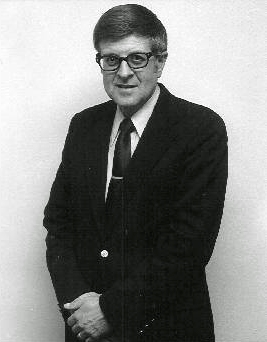| Prev Director - Next Director |
| Director 1973-76 Edward Frenzel |
 |
| EDWARD FRENZEL 1973-1976 Ed began his affiliation with the Cadets in 1971 as a parent of a new Plebe (The Plebes were the Cadets' feeder corps in that era), helping out wherever and whenever he was needed. In 1972 he was offered, and accepted, the position of Director of the Plebes. It was probably the most problem-free period of his drum corps experience; lots of members, good instructors, funds as needed. Ed was enjoying the experience, and he was good at it. The Plebes loved him, the Cadets respected him, and the Cadets' Director, Hugh Mahon, had full confidence in him. He had no idea that the hand of fate was about to tap him on the shoulder. Following a year of extreme pressure and turmoil in 1972, Hugh Mahon, decided to pass the baton. Ed was the chosen recipient. Without any preparation, without experience (save his single year as Director of the Plebes), and without a plan in place; Ed suddenly found himself Director of one of the most famous drum and bugle corps in the world He accepted the office with two goals in mind; to ensure the survival of the corps, and to do everything within his power to make the corps financially solvent. Both goals involved difficult decisions and a lot of sacrifice. As Ed explains; what was needed wasn't what was wanted by the members of the corps. Many of them departed. The staff was splintered and had to be rebuilt. He asked Ray Cappicille to accept that responsibility. It was on-the-job training, with each day more difficult than the last. Ed, however, proved up to the challenge All unnecessary expenses were put on hold, including travel and overdue equipment replacement. For the first time in the Cadets' history Ed felt compelled to withdrew the corps from a first contest of the season commitment. Both were extremely unpopular and openly criticized decisions. Ed, however, knew that survival was at stake, and so he accepted the criticism and moved his goals of long-term-survival and fiscal-responsibility forward. As a founding member of DCI the Cadets were permitted two years out of finals before their membership would be suspended (an early policy no longer in effect). In late 1975 the Cadets, now debt free, placed 11th at the DCI Championships, thereby maintaining member status. Ed had accomplished what he set out to do, but at great personal sacrifice. Like many Director's before him he began to realize that his sacrifices paled in comparison to the sacrifices being made by his family. Ed and his lovely wife of 50 years, Annette, are the proud parents of three children. The two oldest, Ed Jr. (Horn) and Renee (CG) both marched Cadets. His youngest daughter, Dawn, was too young to march during Ed's tenure. By 1976 all three children needed Ed more as a Father than as a Director, so reluctantly he ended his years of service to he Cadets. Just as it was a difficult decision to accept the position, so too was it just as difficult to depart. One of the unknowns of Ed's life is that as a young teenager he had hoped to join the Cadets. Unfortunately it was at a time early in 1950 when there were no openings, and no new members were being accepted. How ironic that he later became the Director of the corps he was unable to join. Heroism takes many forms. Ed's willingness to accept the responsibility and challenge of the position of Director of the Cadets; knowing full well he was unprepared, is the kind of heroism all Cadets understand and respect. In retirement, with his wife, his children, and his five grandchildren (Kevin, Kyle, Tyler, Kiera, and Sydney), this lifelong Garfield resident and parishioner of The Church of The Most Holy Name (Ed has since relocated to a neighboring town) is honored and respected by all those whose lives he touched, and by the corps whose existence he helped to secure. |
| Text by Dave Shaw |